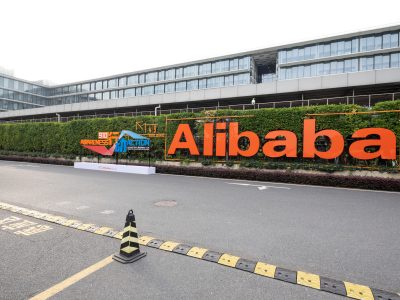
The iGaming sector has rapidly transformed into a multi-billion-dollar global industry, driven by technological advancements, evolving regulations, and shifting consumer behaviours.
As markets open, regulations tighten, and competition intensifies, leaders at the forefront of this space are redefining the boundaries of entertainment and entrepreneurship.
Speaking to Invezz, Dr. Andreas Ditsche, CEO of iGaming.com Group GmbH – one of Berlin’s leading affiliate marketing companies, says he expects a modest single-digit growth for the sector, with a continued shift towards regulated markets and greater societal acceptance.
With a dual role as a university professor in management and entrepreneurship, Dr. Ditsche brings a unique blend of academic insight and hands-on industry expertise.
His career spans leadership in industrial giants, private equity, and M&A, alongside a passion for fostering startups as an investor and advisory board member.
Having lived and worked across Germany, France, Italy, the UK, and the US, Dr. Ditsche’s international experience positions him as a thought leader on remote work, innovation, and the evolving iGaming landscape.
Invezz: In your experience, what are the primary factors driving the rapid growth of the iGaming sector in recent years, and how do you see this trajectory evolving in the next 5-10 years?
The pandemic played a pivotal role in accelerating the growth of the iGaming sector, as lockdowns and restrictions limited entertainment options, making online gaming one of the few available pastimes.
Additionally, the opening of the North American market has fueled this expansion. Another significant factor has been the positive impact of regulation.
Licensing has made gambling more socially acceptable and accessible, although the effectiveness of regulatory regimes varies by country.
For instance, in the UK, more than 90% of the market is channelled into the regulated space, whereas in countries like Germany, the illegal market continues to thrive despite regulation.
I expect modest single-digit growth for the sector, with a continued shift towards regulated markets and greater societal acceptance.
Invezz: How do emerging technologies, such as blockchain and AI, influence the development of the iGaming sector, and what role do they play in maintaining competitive advantage?
The future of iGaming will be defined by personalized entertainment, excitement, and unique experiences. Emerging technologies such as blockchain and AI are essential in tailoring the gaming experience to individual preferences.
As players increasingly seek community-driven experiences, these technologies will facilitate social interactions within virtual groups, even during solo gameplay.
Blockchain and NFTs will also allow for the creation of unique, verifiable in-game items, such as trophies, which will enhance the emotional appeal of online gambling.
With the growing number of available games, bots will help players choose the most suitable options, and the social aspect of gaming will distinguish one provider from another.
Invezz: The iGaming industry often faces varying regulations across jurisdictions. How can companies effectively navigate these challenges, and what trends do you foresee in global regulatory frameworks?
Today, the iGaming industry is a multi-billion-dollar business, supported by highly skilled legal teams, business development experts, and lobbyists who track market trends and regulatory developments.
While country-specific regulations present challenges, particularly for smaller providers, economies of scale will play an increasingly important role, leading to market consolidation.
A key regulatory challenge is channelization—encouraging players to migrate from the black market to regulated environments.
This can be achieved through either strict enforcement or by making regulated offerings more attractive. Evidence suggests that a more appealing regulated market yields better results than punitive measures.
For example, Germany’s tax revenue from online gambling has fallen nearly 70% over the past three years, largely due to players shifting to the illegal market.
Beyond the loss of tax revenue, the bigger issue is that players are left unprotected in these illegal spaces.
I anticipate that more legislators will focus on creating attractive regulated markets in the years to come.
Invezz: From an investor’s perspective, what are the key opportunities and risks when entering the iGaming sector, and how should one evaluate the long-term sustainability of such investments?
The iGaming sector presents significant opportunities due to its profitability, scalability, and global reach, though it may not appeal to all investors, particularly those with ESG (Environmental, Social, and Governance) concerns.
Regulation enhances the sustainability of investments by fostering societal acceptance and providing a degree of stability.
Changes within existing regulatory frameworks tend to be less disruptive than the transition from unregulated to regulated markets, making investments more palatable.
Moreover, human nature, the inherent desire to play games, ensures long-term demand, and legislators are likely to continue accommodating this need.
Invezz: As a leader with extensive experience in remote work, what strategies do you recommend for iGaming companies to maintain productivity, innovation, and a strong corporate culture in a predominantly remote work environment?
The iGaming industry, with its intangible products, is a prime example of how remote work, flexible work models, and global networks can be leveraged to drive success. At the core of this is the belief that culture trumps strategy.
A strong corporate culture is essential for sustaining remote organisations, and increasing regulation is helping improve the industry’s reputation, allowing employees to take pride in their work.
At iGaming.com Group GmbH, we treat our employees as adults, trusting them to manage their work schedules and locations.
This autonomy fosters transparency, ownership, and a sense of accomplishment.
We believe that a culture of dignity, respect, and appreciation is fundamental to innovation and creativity, regardless of organizational structure.
The post Interview: iGaming presents opportunities due to its profitability, scalability, and global reach, says Dr. Andreas Ditsche appeared first on Invezz









